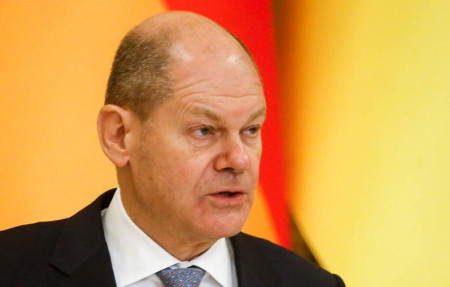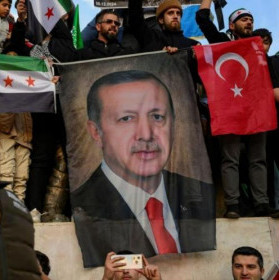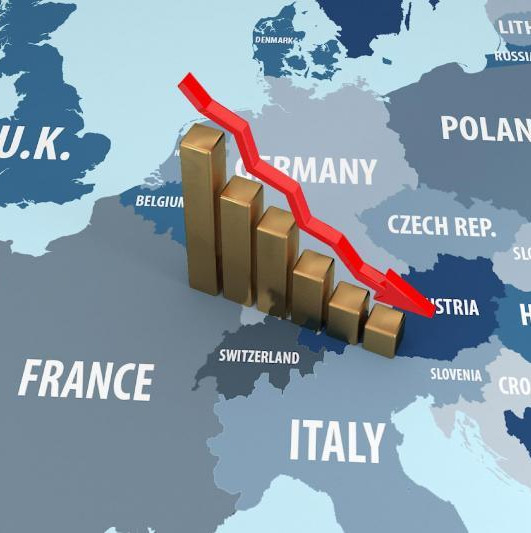
The European Parliament elections held in Germany last Sunday have revealed strong discontent and total distrust of the country's voters in policies of Social Democrat Chancellor Olaf Scholz’s coalition government (SPD, Greens, FDP). By the way, surveys exposed that most burghers prioritize the domestic course over pan-European issues. As a result, the opposition CDU/CSU bloc has appeared the explicit leader (some 31 percent of the vote), outdoing the Social Democrats and the Greens by more than twofold (14.4 percent and 12 percent, respectively).
For the SPD, this figure has become an all-time low. The Greens, in turn, have crumbled from the level of 20.5 percent as compared to 2019. A hot mess, pure and simple. The number of votes mustered by the third partner in the ruling coalition, the FDP, may be called expectedly low — less than five percent. Sarah Wagenknecht’s Union party, for which it was the first ever European Parliament election, gained six percent throughout Germany right away. Frau Wagenknecht dubbed the result “utterly tremendous.” “I can't remember off the top of my head that an election newcomer has ever gained over five percent of the vote on its first try,” she noted.
A real slap in the face to the entire German political elite was the Alternative for Germany (AfD) party’s second place (nearly 16 percent) in the national vote, despite the aggressive propaganda campaign waged against it by the state over the last few months. Apart from being defamed in the mainstream German media that branded it far-right, populist and extremist, various cities across the country regularly witnessed “protest rallies against right-wing extremism”, which specifically referred to the AfD and its leaders.
Now CDU and CSU headquarters are enthusiastically celebrating victory in the last vote, with CDU Secretary General Carsten Linnemann even demanding an early Bundestag election. Chairman of the Bavarian CSU party Markus Söder has come over to this stance as well. Truth be told, the option is hardly likely, because in that case German law would require that the Chancellor raise the issue of his own credibility in the country's parliament. Don't you bet on it this kind of step by Herr Scholz.
Tellingly, SPD Secretary General Kevin Kühnert called the election outcome a “bitter and heavy defeat” for the Social Democrats when appearing on ARD TV. As for discussions regarding the role of government head Chancellor Olaf Scholz, he used the terms “inappropriate and bad-style.” “SPD’s failure cannot be blamed on one single person,” the politician emphasized.
Amid enthusiasm pervading the high places of the CDU and CSU, note should be made of statements by a prominent Christian Democrat politician, Minister President of Saxony-Anhalt Reiner Haseloff. He said citizens punished the current government for its “wrong course and priorities,” and “in the country’s East, the CDU alone can compete with the AfD, which is a danger to democracy.” “The fact that the Alternative for Germany seems to approach the status of the country’s second most powerful party is an alarming signal,” Herr Haseloff stressed. The politician called this EP election seemingly successful to the CDU/CSU “a truly bad day for Germany.”
Saxony-Anhalt President Minister Rainer Haseloff’s pessimism is understandable. Brandenburg, Mecklenburg-Vorpommern, Saxony, Saxony-Anhalt and Thuringia — the AfD won throughout eastern Germany to leave the CDU second everywhere. Moreover, the former’s advantage can be hardly called overwhelming: 31.8 percent of the vote in Saxony, 30.7 percent in Thuringia, 30.5 percent in Saxony-Anhalt, 28.3 percent in Mecklenburg-Vorpommern, and 27.5 percent in Brandenburg. By the way, Sarah Wagenknecht’s Union party came third in East Germany with figures ranging from 12.6 percent in Brandenburg to 16.4 percent in Mecklenburg-Vorpommern. Notably, the Social Democrats enjoyed less than 10 percent in Saxony, Saxony-Anhalt, Thuringia, and Bavaria.
Naturally, Alternative for Germany co-chairs Tino Chrupalla and Alice Weidel called the outcome of the current voting on European Parliament candidates a “historic super-result,” underscoring the AfD’s second place (almost 16 percent) across the country. And yet, it should not be supposed that some pro-Russian forces headed by “Putin’s friends” have allegedly started gaining strength in Germany. Not in the least bit. But a pan-European trend is on the rise indeed, when the population gets increasingly inclined to support forces concerned with defending their countries’ national interests against the dictates by EU officials from Brussels. Thus, German burghers are clearly unhappy with their declining living standards, mounting unemployment, and energy price surge following the authorities’ decision to decouple with Russia and impose sanctions against it. The choice to ramp up military spending contrary to social payments, increase arms supplies to Kiev, refuse to peacefully resolve the conflict in Ukraine by diplomatic means, and encourage preparations to fight Russia nourish no good feelings with the Germans altogether.









